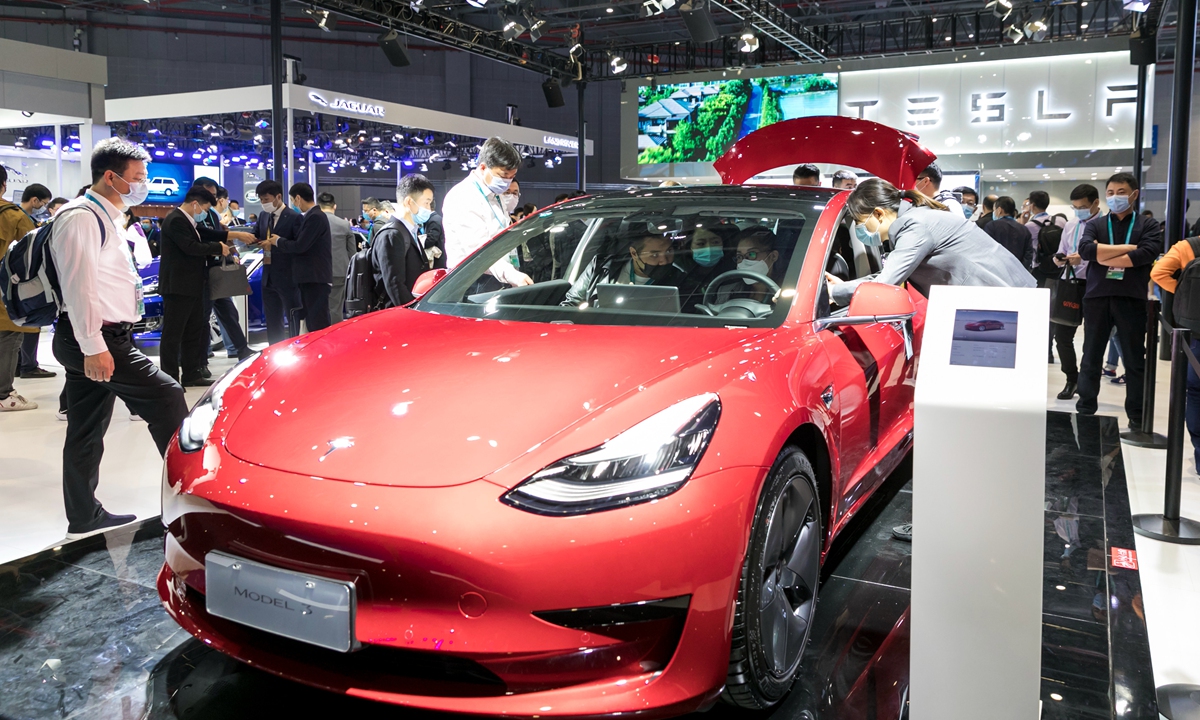
A Tesla EV model seen in Shanghai in November 2020 Photos: cnsphoto
Tesla said on Monday that a customer's charging failure in Nanchang city in East China's Jiangxi Province was caused by instantaneous current overload during charging. Tesla also apologized to the State Grid for blaming it earlier, and said that it has already resolved the issue with the customer, and is testing and investigating the cause of this failure.
According to media report, the Tesla model 3 that a consumer in Nanchang bought only six days earlier was unable to start after charging, with vehicle's inverter burned out.
Tesla customer service staff later suggested China's electric grid current was too strong, and said it was not a vehicle failure.
The State Grid Corporation's Nanchang branch responded on Sunday stating that the national grid current is "stable and normal," and the surrounding equipment of the charging poles were also operating normally.
"Tesla's charging station has its own unique charging standards. Tesla electric vehicles are connected to and used by Tesla's special charging devices, instead of connecting directly to the electricity power lines," the State Grid Corporation said in the statement.
"We advise that Tesla ask professional personnel to investigate the cause of the charging failure," the State Grid Corporation added.
Tesla apologized on Monday to the State Grid, adding that the previous communication between its staff and the affected customer was edited.
"Tesla is trying to pass the responsibility to the State Grid thinking that it wouldn't respond," a popular comment under the statement said, "My BYD is charging and there is no problem whatsoever."
Tesla has been widely criticized for avoiding responsibility when dealing with quality control issues. In October last year, Tesla recalled Model S and Model X produced between 2013 and 2017 after the car suspension failure rate in China was found to be excessively high. Tesla denied that it was a quality issue, but is caused by misuse of owners.
In March, Tesla also triggered criticism in China after it quietly downgraded parts of its first batch of Shanghai-made Model 3 vehicles, replacing promised new control chips with an older version. Tesla later said that it was due to supply chain disruption during the pandemic.
Global Times




